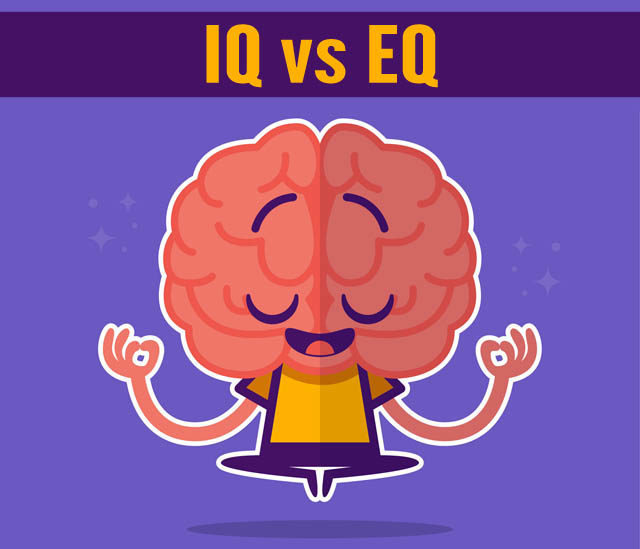So much has been written and discussed on Intelligence quotient and Emotional quotient and yet there exists some confusion regarding which trait is needed to succeed in life. While it is a fact that we need both to function at our optimum best, it cannot be ignored that both are entirely different traits. Let us take a look at what they mean.

Intelligence quotient (IQ) is an intelligent test score, derived from a standardized intelligence test in which an individual’s mental age is divided by his chronological age and then multiplied by 100. This test reflects a person’s cognitive abilities of reasoning and thinking. The term was coined by William Stern.
Emotional Quotient (EQ) is defined as a person’s capability of identifying his own and another person’s emotions. The term first evolved in 1995. EQ is used to understand situations, the thoughts of people involved, cope with pressures, crisis and take the right decisions based on the interpretations.
While short listing suitable candidates for a job, employers look for both these traits. But the question arises which one of these should be given predominance over the other? Research has shown that IQ occupies only between 10% to 25% criteria in the final selection of a candidate, the rest of it is allotted to EQ.
Important differences between IQ and EQ are listed below.
Intelligence quotient throws light on an individual’s logical reasoning abilities. It is a number which is derived from a standardized test. A person with a good IQ score does well in academics. IQ cannot be acquired as one is born with it. High IQ scores make it possible for people to learn and implement knowledge. Logical reasoning and abstract thinking are skills which people with high IQ possess. A high IQ score is attributed to people with high intellect and common sense.
Emotional Quotient measures a person’s social and interpersonal relations. The ability to understand one’s own and other people’s feelings, thoughts and situations so as to come up with accurate solutions leading to collective progress. EQ can be acquired and honed through the years. It is an important trait to acquire in order to succeed in life. A challenging situation can be brought into control and steered in the right direction by a person with a high EQ. People with high EQ make for leaders, captains, managers and the like.
An individual’s success at work can be attributed to both IQ and EQ in the ratio of 20:80. EQ aids in building good interpersonal relations with co-workers, understanding the need of the hour, the challenges from everyone’s point of view which results in better decision making skills. Communication is their forte’ and they respond to mail, issues of co-workers and the management with ease and in full control of the situation.
So we can safely conclude that while both IQ and EQ have their own roles to play in the successful career of an individual, it has also been found that people with high EQ have been more successful in life and not just in the workplace.

























